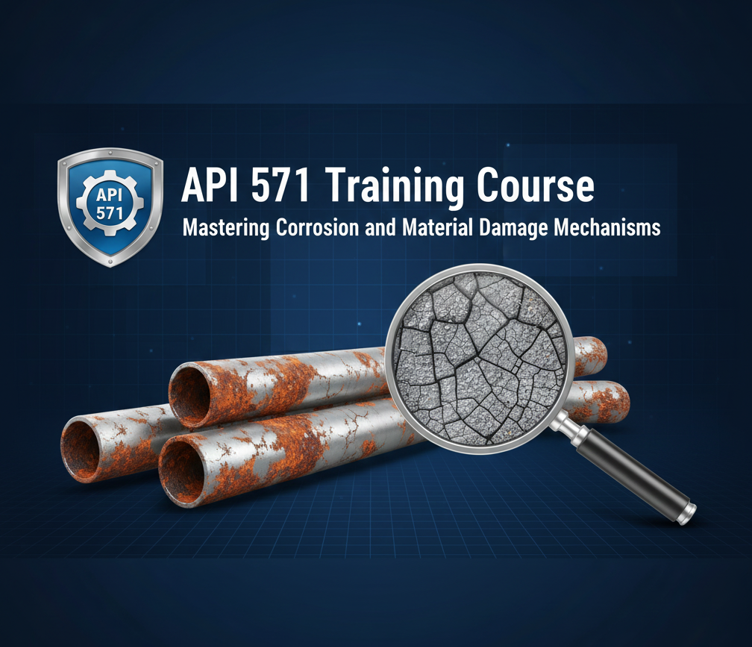Responsibilities of a piping engineer
 Designing and developing piping systems for new facilities, including selecting materials, determining pipe sizes and thicknesses, and specifying the location of valves, pumps, and other components.
Designing and developing piping systems for new facilities, including selecting materials, determining pipe sizes and thicknesses, and specifying the location of valves, pumps, and other components.- Reviewing and approving piping design and fabrication drawings, and providing guidance to the construction team during the installation and commissioning of the piping systems.
- Conducting site visits and inspections to ensure that the piping systems are installed and maintained in accordance with the design specifications.
- Identifying and assessing potential safety hazards and developing risk management plans to ensure the safe operation of the piping systems.
- Developing and implementing standard operating procedures, maintenance schedules, and inspection programs to ensure the safe and reliable operation of the piping systems.
- Collaborating with other engineers, such as mechanical, electrical, and process engineers, to ensure that the piping systems are integrated with other systems in the facility.
- Keeping abreast of new codes, standards, and technologies related to piping systems, and making recommendations for changes or upgrades as needed.
- Providing technical support and troubleshooting assistance to operators and maintenance personnel as needed.
Overall, the role of a piping engineer is to ensure the safe, efficient, and reliable operation of the piping systems used in industrial and commercial facilities. They must have a strong understanding of engineering principles, codes and standards, and be able to apply this knowledge to the design, construction, and maintenance of piping systems.
Roles
- Piping engineers look after execution phase of the project or to be concise he takes charge on construction phase of the project.
- Assisting construction team in reading drawings, locating the exact point of installation, supply and monitoring inventory.
- Troubleshooting field raised issues and providing immediate solution to the execution team.
- Monitoring the entire execution phase to make sure that the piping arrangements are exactly fabricated and installed as given in the drawings.
- Verify the requirements of vent and drain more than specified in the drawings to facilitate the hydro testing and any other testing on demand from unit.
- Ensure that safety measures are considered during construction and permits are granted after safety inspection.
- Co-ordinate with operation and maintenance team to ensure that the unit requirements are met during construction.
- Review drawings and study the site condition in prior to the construction phase to mobilize the equipment, tools and man powers as necessary as required.
- Follow up with quality inspection team to examine that the weld joints are tested for its integrity.
- Examining hydro testing process and approve the piping after completion of testing.
- Driving the construction team to complete the job on time as planned by facilitating the need of the contractors.
- Prepare documentation about the summary of the project, safety issues, lesson learnt, & material balance inventory report.
- Coordinating with operation team during the commissioning of the project.
- Involve in HAZOP and HAZID studies with team of mechanical and process engineers.
Piping engineer job description
 A piping engineer is a professional who designs, installs, and maintains piping systems. They are responsible for ensuring that these systems are safe, efficient, and compliant with all applicable codes and standards.
A piping engineer is a professional who designs, installs, and maintains piping systems. They are responsible for ensuring that these systems are safe, efficient, and compliant with all applicable codes and standards.
The specific duties of a piping engineer vary depending on the industry and the size of the project. However, some common tasks include:
- Conducting feasibility studies and developing piping layouts
- Analyzing fluid flow and pressure requirements
- Selecting materials and components
- Preparing engineering drawings and specifications
- Inspecting and commissioning piping systems
- Solving problems and troubleshooting
- Maintaining piping systems
Piping engineers typically work in a variety of industries, including:
- Oil and gas
- Chemical
- Petrochemical
- Power
- Water and wastewater
- Manufacturing
- Food and beverage
They may work for engineering firms, construction companies, or manufacturing plants.
To become a piping engineer, you will need to have a bachelor's degree in engineering, preferably in mechanical or civil engineering. Some employers may also require a master's degree. You will also need to have strong analytical and problem-solving skills, as well as the ability to work independently and as part of a team.
The median annual salary for piping engineers is $91,180. The salary range for piping engineers typically falls between $62,960 and $128,960.
If you are interested in a career as a piping engineer, you should be a creative thinker with a strong attention to detail. You should also be able to work well under pressure and meet deadlines.
Here are some of the skills and qualifications that are typically required for a piping engineer job:
- Bachelor's degree in engineering, preferably in mechanical or civil engineering
- Strong analytical and problem-solving skills
- Ability to work independently and as part of a team
- Knowledge of piping codes and standards
- Experience with 3D modeling software
- Ability to read and interpret engineering drawings
- Excellent written and verbal communication skills
If you are interested in a career as a piping engineer, there are a few things you can do to improve your chances of getting a job. First, make sure you have the necessary education and skills. You can also get involved in extracurricular activities that will help you develop your skills, such as joining a student engineering organization or participating in engineering competitions. Finally, network with other engineers and professionals in the field. This will help you learn more about the industry and make connections that could lead to a job.
Complete Oil and Gas Industry Practical Training Course
Complete Oil and Gas Industry Practical Training Course is a self-learning, practical program powered by industry expertise. Log in to explore, practice real scenarios, and grow industry-ready skills.
- pipenet
- pipesim
- HTRI
- olga
piping lead engineer responsibilities
 A piping lead engineer plays a pivotal role in the design, planning, and execution of piping systems within various industries, including oil and gas, petrochemical, power generation, and more. Their responsibilities encompass both technical and managerial aspects to ensure the successful completion of piping projects. Here are the key responsibilities of a piping lead engineer:
A piping lead engineer plays a pivotal role in the design, planning, and execution of piping systems within various industries, including oil and gas, petrochemical, power generation, and more. Their responsibilities encompass both technical and managerial aspects to ensure the successful completion of piping projects. Here are the key responsibilities of a piping lead engineer:
Project Management:
- Lead and manage piping engineering projects, including planning, scheduling, budgeting, and resource allocation.
- Coordinate with project managers, stakeholders, and multidisciplinary teams to meet project objectives and deadlines.
Design and Engineering:
- Develop detailed piping system designs, layouts, and specifications in compliance with industry standards, codes, and regulations.
- Perform hydraulic and stress analysis to ensure the integrity and functionality of piping systems.
- Select appropriate materials, fittings, and components for the piping system based on project requirements.
Supervision and Team Leadership:
- Supervise and mentor a team of piping engineers and designers, providing guidance, technical support, and training as needed.
- Assign tasks, review work, and ensure that engineering standards are maintained.
Quality Assurance and Compliance:
- Ensure that piping designs adhere to all relevant safety, environmental, and quality standards.
- Conduct design reviews, inspections, and audits to verify compliance with codes and regulations.
Procurement Support:
- Collaborate with procurement teams to specify and procure piping materials, components, and equipment.
- Review vendor documentation and ensure that purchased items meet project requirements.
Cost Control:
- Monitor project costs related to piping design and engineering activities.
- Identify cost-saving opportunities and recommend cost-effective solutions.
Risk Assessment:
- Identify potential risks and hazards associated with piping systems and develop mitigation strategies.
- Ensure that safety protocols and guidelines are followed.
Documentation and Reporting:
- Create and maintain detailed engineering documentation, including drawings, specifications, calculations, and reports.
- Prepare progress reports and communicate project status to stakeholders.
Coordination with Other Disciplines:
- Collaborate with mechanical, structural, electrical, and process engineers to ensure the integration of piping systems with other project components.
- Resolve interdisciplinary design conflicts.
Construction Support:
- Provide technical support during the construction phase, including responding to field queries, reviewing as-built drawings, and overseeing installation and testing.
Commissioning and Start-Up:
- Assist in commissioning and start-up activities to ensure that piping systems operate as intended.
- Address any issues or deviations from design specifications.
Continuous Improvement:
- Stay updated on industry trends, best practices, and new technologies related to piping engineering.
- Implement process improvements and lessons learned from previous projects.
Client Communication:
- Maintain regular communication with clients, addressing their concerns, providing project updates, and ensuring client satisfaction.
Environmental Considerations:
- Consider and implement environmentally friendly practices in piping design, including waste reduction and energy efficiency.
Piping lead engineers play a critical role in the successful execution of complex projects, and their responsibilities encompass technical expertise, leadership, and project management skills. Their work contributes to the safe and efficient operation of industrial facilities and infrastructure.
What is a piping engineer
A piping engineer is a professional who designs, installs, and maintains piping systems. They are responsible for ensuring that these systems are safe, efficient, and compliant with all applicable codes and standards.
Piping systems are used to transport fluids, such as water, oil, gas, and chemicals, from one location to another. They are essential in a variety of industries, including:
- Oil and gas
- Chemical
- Petrochemical
- Power
- Water and wastewater
- Manufacturing
- Food and beverage
Piping engineers typically work in engineering firms, construction companies, or manufacturing plants. They may also work for government agencies or utilities.
The specific duties of a piping engineer vary depending on the industry and the size of the project. However, some common tasks include:
- Conducting feasibility studies and developing piping layouts
- Analyzing fluid flow and pressure requirements
- Selecting materials and components
- Preparing engineering drawings and specifications
- Inspecting and commissioning piping systems
- Solving problems and troubleshooting
- Maintaining piping systems
To become a piping engineer, you will need to have a bachelor's degree in engineering, preferably in mechanical or civil engineering. Some employers may also require a master's degree. You will also need to have strong analytical and problem-solving skills, as well as the ability to work independently and as part of a team.
The median annual salary for piping engineers is $91,180. The salary range for piping engineers typically falls between $62,960 and $128,960.
If you are interested in a career as a piping engineer, you should be a creative thinker with a strong attention to detail. You should also be able to work well under pressure and meet deadlines.
Here are some of the skills and qualifications that are typically required for a piping engineer job:
- Bachelor's degree in engineering, preferably in mechanical or civil engineering
- Strong analytical and problem-solving skills
- Ability to work independently and as part of a team
- Knowledge of piping codes and standards
- Experience with 3D modeling software
- Ability to read and interpret engineering drawings
- Excellent written and verbal communication skills
If you are interested in a career as a piping engineer, there are a few things you can do to improve your chances of getting a job. First, make sure you have the necessary education and skills. You can also get involved in extracurricular activities that will help you develop your skills, such as joining a student engineering organization or participating in engineering competitions. Finally, network with other engineers and professionals in the field. This will help you learn more about the industry and make connections that could lead to a job.
Is piping engineering a good career
 Piping engineering can be a promising career choice for individuals interested in the field of engineering, particularly in industries like oil and gas, petrochemical, pharmaceutical, and more.
Piping engineering can be a promising career choice for individuals interested in the field of engineering, particularly in industries like oil and gas, petrochemical, pharmaceutical, and more.
There are several reasons why piping engineering can be considered a good career option:
Strong job prospects: There is a demand for skilled piping engineers in various industries, leading to a wide range of job opportunities. Websites like LinkedIn offer thousands of job postings for piping engineers, indicating a healthy job market.
Competitive salaries: Piping engineers often earn competitive salaries, which can vary depending on factors such as experience, industry, and location. According to Zippia, the average salary for a piping engineer is around $107,432 per year.
Career growth opportunities: Piping engineers can progress in their careers by gaining experience and advancing their skills. They can move up the career ladder to positions like senior piping designer or senior mechanical engineer.
Diverse industries: Piping engineers have the opportunity to work in various industries, including oil and gas, power plants, refineries, chemical plants, and more. This diversity allows for exposure to different projects and challenges, making the work interesting and rewarding.
However, it's important to note that career satisfaction can vary from person to person. It is essential to consider personal interests, skills, and goals when contemplating a career in piping engineering.









